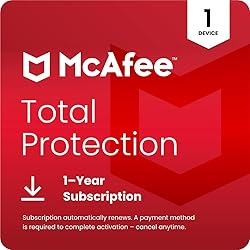VPN for Online Privacy: How It Stops Trackers
VPN for online privacy is becoming an essential tool for anyone concerned about their digital footprint. With the increasing number of online trackers, advertisers, and data brokers tracking user activities, browsing the internet without protection leaves you exposed to a web of surveillance. Understanding how a VPN functions, and more importantly, how it acts as a barrier against trackers, is crucial for maintaining privacy in the modern digital world.
—
What Are Online Trackers?
Before diving into how a VPN guards your privacy, it’s essential to comprehend what online trackers are. Trackers are scripts or codes embedded in websites, ads, or even within apps. Their primary purpose is to collect data on your browsing habits: the pages you visit, where you click, your location, and more. The most common trackers include cookies, pixel tags, browser fingerprinting, and device recognition techniques. Companies and advertisers use this data to create detailed user profiles, influencing what ads you see and even the prices you’re offered.
—
How Does a VPN Work?
A Virtual Private Network (VPN) encrypts your internet connection by routing your data through a secure tunnel to a remote server. To anyone on the outside—whether it’s your internet service provider (ISP), hackers, or even the websites you visit—your traffic appears to be coming from the VPN server, not your own device. This process does two critical things: it hides your real IP address and secures your data from prying eyes.
—
VPN for Online Privacy: The First Line of Defense Against Trackers
When you use a VPN for online privacy, you immediately disrupt several key tracking mechanisms:
1. Masking Your IP Address
Your IP address acts as a unique digital identifier that online trackers, advertisers, and websites use to monitor your activity across the internet. By routing your traffic through a VPN, your real IP stays hidden, making it far more difficult for trackers to link browsing activity back to you.
2. Encryption Shields Your Data
Even if a tracker attempts to intercept your internet traffic, VPN encryption renders the information unreadable. This means that sensitive activities—such as accessing bank accounts, shopping online, or communicating through messaging apps—are significantly more private.
3. Circumventing Geo-Based Tracking
Some trackers rely on your physical location to serve localized content or targeted ads. A VPN allows you to connect to servers in different countries, making it appear as if you are browsing from elsewhere. This reduces the likelihood of location-based tracking.
—
Limitations: Can VPNs Block All Trackers?
While a VPN for online privacy is a powerful tool, it isn’t a silver bullet. Some tracking technologies, such as cookies and browser fingerprinting, operate within your browser and can still track you even if your IP address is masked. For more robust privacy, it’s wise to combine a VPN with privacy-focused browser extensions (like tracker blockers and anti-fingerprinting tools) and maintain strict browser hygiene by frequently deleting cookies.
—
Additional Benefits of Using a VPN
Beyond stopping trackers, a VPN offers a host of other advantages:
– Public Wi-Fi Protection: Encrypts your data on unsecured networks, protecting you from cybercriminals.
– Bypassing Censorship: Allows access to content blocked or restricted in your region.
– Reduced Targeted Advertising: Makes it harder for ad networks to build a profile about you.
—
Best Practices: Maximizing Your Online Privacy with a VPN
To get the most out of a VPN for online privacy, follow these guidelines:
– Choose a reputable provider with a strict no-logs policy.
– Enable kill-switch and DNS leak protection to prevent accidental exposure.
– Regularly update your VPN app and operating systems.
– Use in conjunction with private browsing modes and anti-tracking tools.
—
Conclusion
In the age of ubiquitous data collection, using a VPN for online privacy is one of the most effective steps you can take to stop trackers and regain control of your personal information. While not foolproof, combining a reliable VPN with smart browsing habits can significantly reduce your exposure and keep your online activities out of reach from prying eyes. By understanding and leveraging VPNs, you stay one step ahead in the game of digital privacy.


